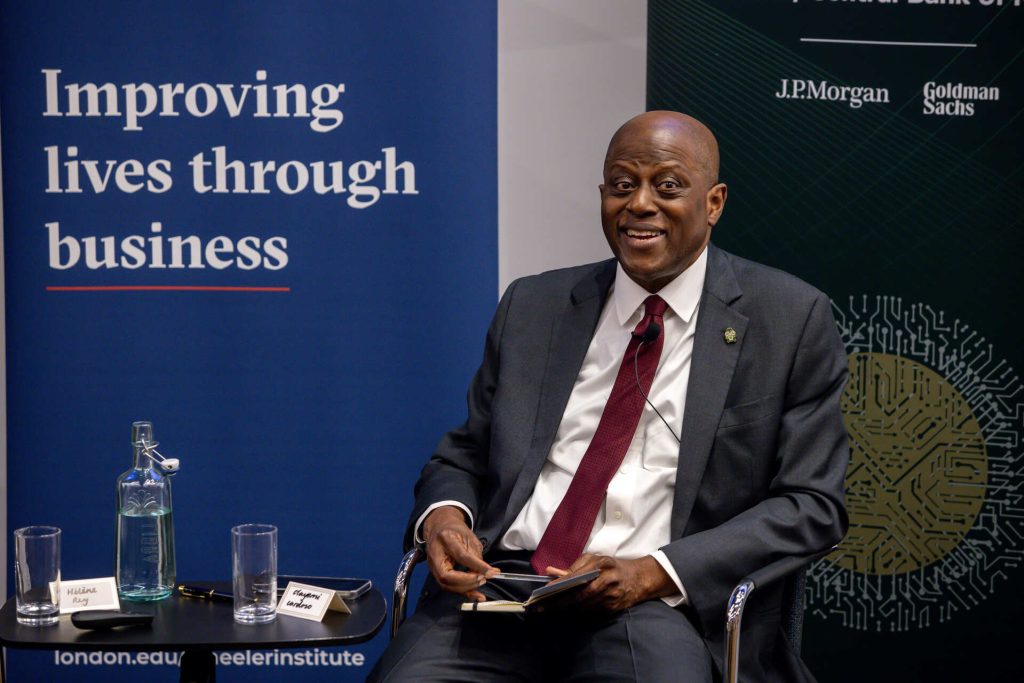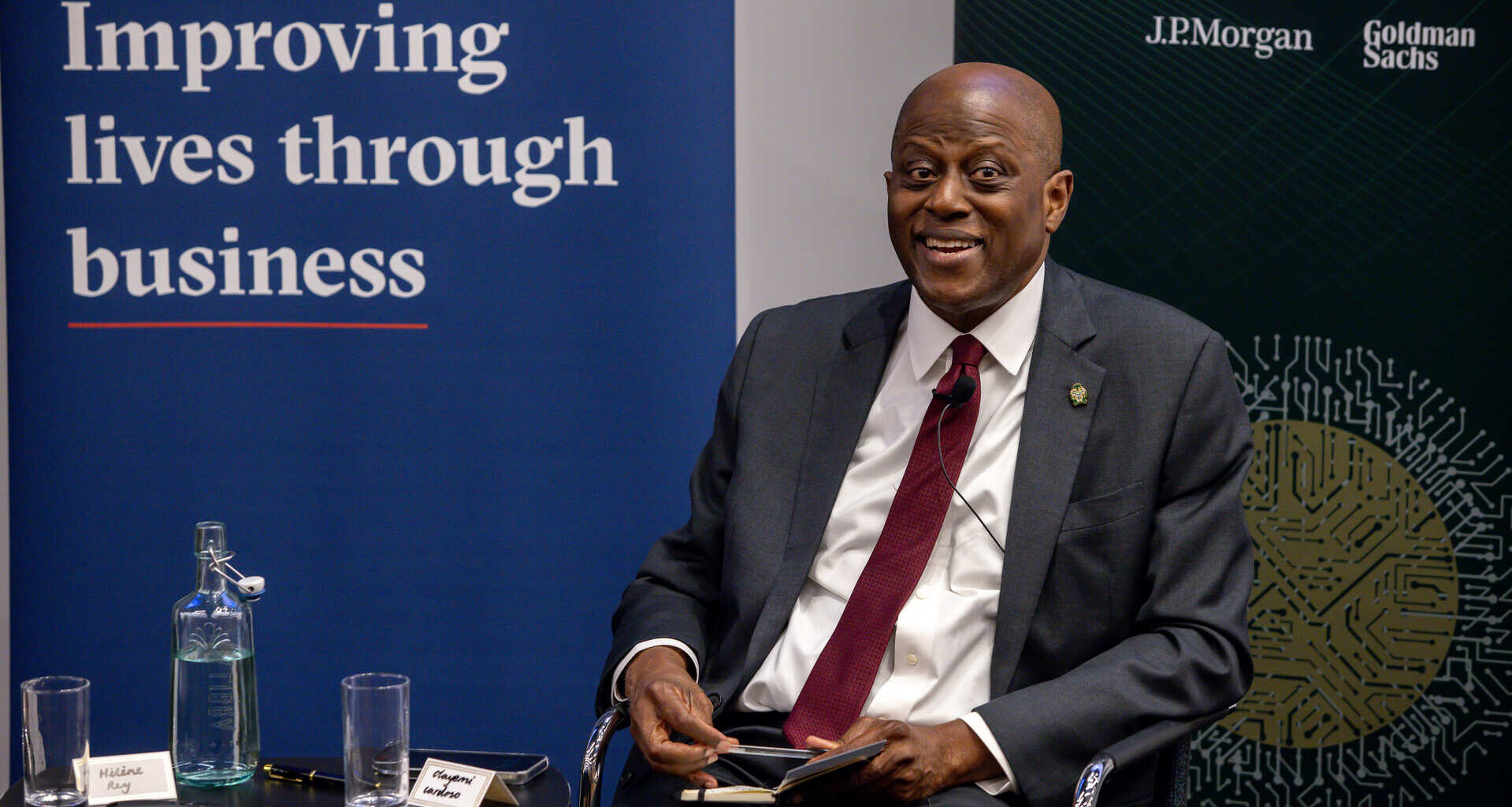
Nigeria’s Central Bank will pursue a balanced, risk-based approach to cryptocurrency and stablecoin regulation while embedding artificial intelligence (AI) across its supervisory systems, Governor Olayemi Cardoso told a London audience on Friday.
The announcement came during the Wheeler Institute’s “In Conversation with the Governor of the Central Bank of Nigeria” event at London Business School, supported by J.P. Morgan and Goldman Sachs, and moderated by Professor Hélène Rey, Lord Bagri Professor of Economics. The session examined Nigeria’s innovation agenda and its role in reshaping monetary policy across emerging markets.
In her opening remarks, Dr. Nkiru Balonwu framed the conversation as evidence of a new openness at the CBN.
“Across the world, central banking is being redefined by technology,” she said. “This dialogue demonstrates Nigeria’s willingness to engage, learn, and lead. It is about using innovation responsibly to strengthen credibility.”
Governor Cardoso commented that “The crypto market in Nigeria developed a life of its own. Innovation is good, but it must rest on transparency and sound risk management. Innovation is welcome; unregulated risk is not.”
He revealed that the CBN and the Securities and Exchange Commission are developing a joint regulatory framework to manage digital-asset risks while encouraging legitimate innovation. “Stablecoins and new payment rails can deepen inclusion,” he said, “but if left unchecked, they can also accelerate dollarization. Our role is to ensure that innovation strengthens, not weakens, the naira.”
Cardoso also disclosed that the Bank has begun integrating artificial intelligence and machine-learning tools into its market-supervision and data-governance systems.
“Our board recently held a retreat themed Digitalization and Artificial Intelligence,” he said. “We have already adopted AI in parts of the Bank. By 2026, we aim for a digital-first regulatory culture that makes oversight faster, smarter, and more transparent.”
He noted that the initiative is part of a broader plan to use technology to reduce human error, detect misconduct earlier, and enhance data-driven policy formulation.
During the Q&A, participants asked about ethical safeguards and AI’s role in financial inclusion. Cardoso said the Bank is collaborating with international partners to establish responsible-use frameworks.
“Technology should make regulation smarter, not harsher,” he said. “When transparency becomes culture, credibility follows.”
Professor Rey commended Nigeria’s pragmatic approach. “Many emerging markets are still debating whether to embrace or ban these innovations,” she said. “Nigeria’s approach, combining caution with commitment, is refreshing.”
Dr. Balonwu also emphasized the link between innovation and trust.
“Digitalization is not just a technology project,” she said. “It’s a leadership statement, that the Central Bank is embracing the future with accountability.”
Cardoso agreed, adding that innovation and stability are complementary, not contradictory.
“Our reforms are not about speed for its own sake,” he said. “They’re about balance, combining modernization with responsibility so that technology becomes a tool for credibility.”
Bringing the evening to a close, Dr. Victor Ugbem Oboh, Director of the Monetary Policy Department at the Central Bank of Nigeria, commended the Governor’s clarity of purpose and the coherence of the reform vision.
“The Governor has showcased bold and courageous reforms at the Central Bank over the last two years,” Dr. Oboh said. “We are all witnessing how these policies are already laying the foundation for macroeconomic stability, institutional credibility, and renewed confidence in Nigeria’s economy.”
He noted that the discussion at London Business School reflected the Bank’s new era of openness and accountability in communicating policy, emphasizing that “the consistency of the message—stability before growth—has become the compass guiding monetary and fiscal coordination.”
